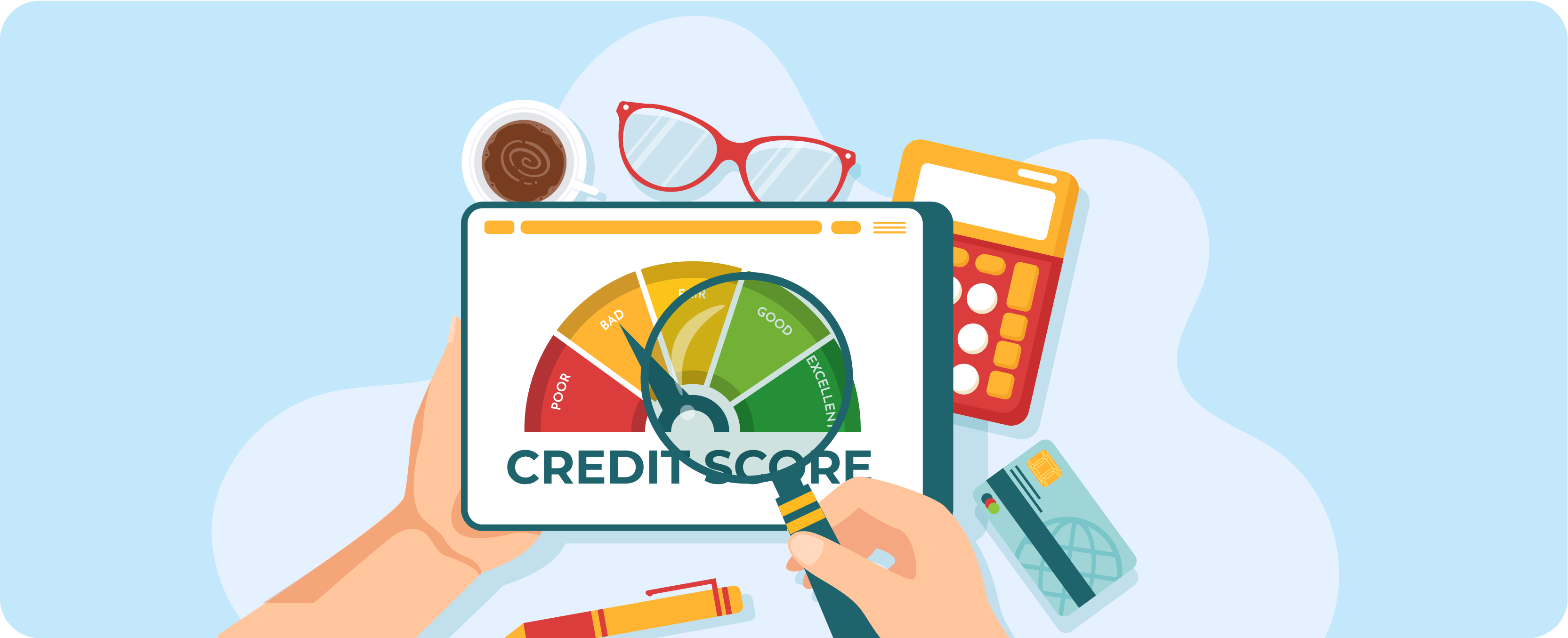- Published on: 14 Jun 2025
- Last updated on: 3 Jul 2025
- Post Views: 1883


Your credit score plays an important role in your financial journey. A low credit score can result in higher interest rates or even rejection of loan applications, whether you’re applying for a personal loan, home loan, or credit card.
Many people unknowingly harm their credit score by making simple mistakes. In this blog, we’ll cover common credit score mistakes and how to avoid them to maintain a good credit score.
A single missed or late repayment can significantly impact your credit score. According to RBI guidelines, all missed payments are reported to credit bureaus (CIBIL, Transunion, CRIF Highmark, Experian, and Equifax), which directly affects your creditworthiness. Since payment history is the most critical factor in determining credit score health, even one delayed payment can make it harder to qualify for future loans or credit cards with favourable terms.
How to avoid:
Some people make it a habit to spend heavily through credit cards regularly, without considering the consequences. Your Credit Utilisation Ratio (CUR) is the percentage of credit you use from your credit cards. For example, if your total credit limit across all cards is ₹1,00,000 and you have used ₹20,000, your CUR would be 20%. Maintaining a CUR below 30% is important for a healthy credit score. A high CUR indicates a greater dependency on credit and potential financial stress, which can make lenders consider you a high-risk borrower.
How to avoid:
Paying only the minimum amount of your credit card bills may seem convenient, but it significantly increases interest charges over time. The high interest rates on the unpaid balance, generally 30–40% per year, make it difficult to pay off the total bill. This practice can lead to a debt trap, where outstanding balances continue to grow, negatively affecting your financial stability and credit score.
How to avoid:
As a co-signer or co-borrower of a loan, you share equal responsibility for its repayment. If the primary borrower defaults, the lender will hold both parties accountable, and the co-signer’s credit score will also be negatively impacted. The loan and any missed payments will appear in your credit report, potentially lowering your creditworthiness.
How to avoid:
Sometimes people close their old credit cards as they no longer use them. Keeping older credit card accounts open helps maintain a longer credit history, which positively impacts your credit score. The average age of your credit accounts is an important factor in determining your creditworthiness.
How to avoid:
Errors or incorrect information in your credit report can lead to a drop in your credit score, which in turn affects your overall creditworthiness. Incorrect information, such as showing late EMI payments on your loans and credit card bills, or loans in your account that you never took, can negatively impact your credit profile.
How to avoid:
Whenever you apply for a loan or credit card, the lender initiates a hard credit inquiry to assess your creditworthiness. Each hard inquiry causes a temporary drop in your credit score. Making multiple applications within a short period can lead to a significant decline in your score. Additionally, these inquiries are recorded in your credit report, making you appear as a high-risk or desperate borrower to potential lenders.
How to avoid:
A good credit score is more than just a number; it reflects your financial discipline and stability. Credit score relevance goes beyond its impact on your loan application approval and getting a loan at lower interest rates.
A low credit score can also lead you to pay higher insurance premiums. A high CIBIL score, reflecting a strong financial history, can lower insurance premiums, particularly for car insurance. Insurers consider individuals with good credit history, as they are less likely to default on insurance premium payments.
Maintaining a healthy credit score is essential for long-term financial well-being. It ensures that you can access financial resources when you need them most.
Avoiding these common credit score mistakes can help you maintain a strong credit profile, improve your chances of loan approval, and help you take other financial benefits, like lower insurance premiums. DMI Finance offers a free credit score check service and a free monthly credit report to everyone. Monitor your credit score to stay on top of your financial management.
1. How long does it take to improve a low credit score?
The time it takes to improve a low credit score typically ranges from a few months to a year. This depends on factors such as your credit profile and how consistently you take positive actions to improve.
2. Can I get a personal loan with a low credit score?
Getting a personal loan with a lower credit score is tough, but not impossible if you have other favourable eligibility factors on your side. DMI Finance does not assess applicants’ eligibility only based on their credit score; we also consider their repayment capacity, income stability, and other factors.
3. Does checking my credit score affect my score?
No, checking your credit score is a soft inquiry and does not impact your score.
4. How do I fix errors in my credit report?
You can file a credit dispute with the relevant credit bureau (CIBIL, Experian, Equifax, and CRIF Highmark). They will check it and erase the incorrect information from your credit report.
5. How does closing a credit card impact my credit score?
Closing a credit card reduces your credit history length and reduces your total credit limit. Having a lengthy credit history and a lower credit utilisation ratio are important factors for a good credit score.
| Terms | Definition |
|---|---|
| Creditworthiness | A lender’s assessment of how reliable you are when it comes to repaying loans. |
| Credit Limit | The maximum amount you can borrow/ use using a credit card or credit account. |
| Credit History | A record of how long and how responsibly you’ve been using credit products like loans and credit cards. |
| Credit Profile | A summary of your credit behaviour, including your score, types of loans, and repayment record. |
| Credit Card Billing Cycle | It is a period during which your purchases and payments are recorded for your monthly credit card bill |
| Default | Failure to repay a loan’s EMI or credit card bill on time. |
| Dispute (Credit Report) | A formal complaint you file with a credit bureau if you find incorrect information in your report. |
| Repayment Capacity | A lender’s estimate of your ability to repay a loan, based on your income, expenses, and current debt. |


